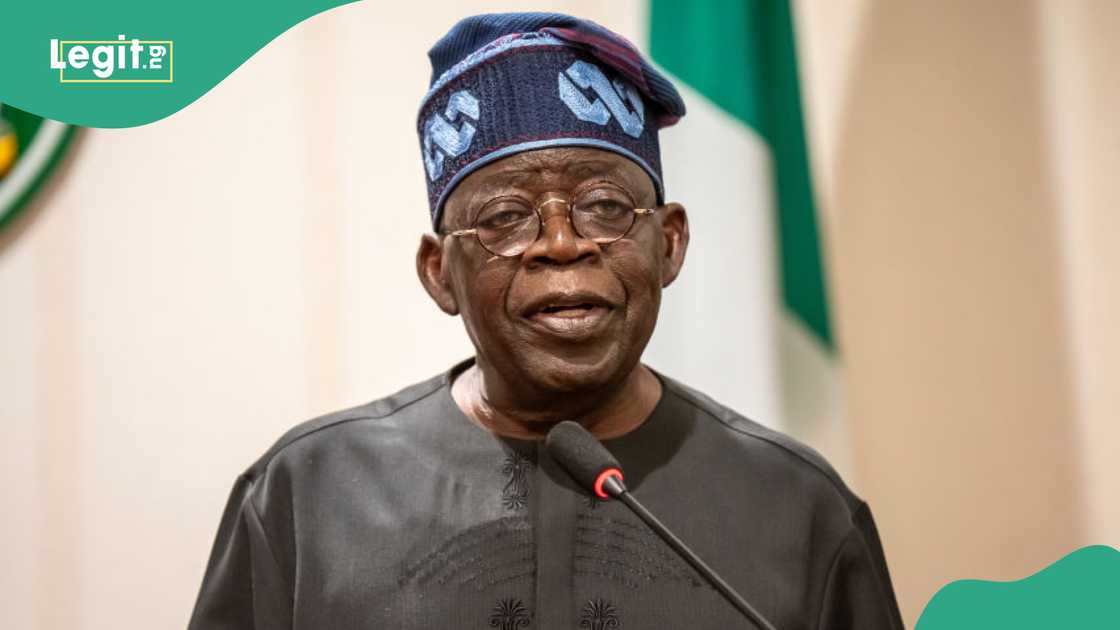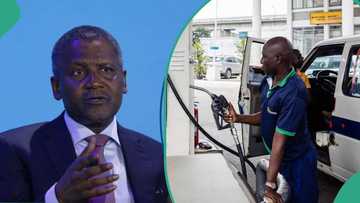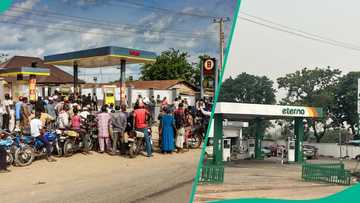Petrol Marketers Warn of Hardship as FG Unveils 5% Fuel Surcharge, Eyes ₦796bn
- The proposed five per cent levy on all locally refined and imported fuel drew backlash from marketers and consumers
- The new levy, which will commence on January next year, is embedded in the new Tax Administration Act
- Analysts estimate that, based on 2024 consumption data, the surcharge could fetch up to ₦796 billion annually.
Legit.ng’s Pascal Oparada has reported on tech, energy, stocks, investment and the economy for over a decade.
The federal government’s plan to impose a five per cent surcharge on all locally refined and imported petrol has triggered strong resistance from marketers, transport unions, and civil society groups.
Slated for implementation from January 1, 2026, the surcharge is enshrined in the new Nigeria Tax Administration Act, signed into law on June 26, 2025.

Source: Getty Images
Marketers: “Consumers will pay the price”
Analysts estimate that, based on 2024 consumption data, the surcharge could fetch up to ₦796 billion annually.
In 2024, Nigeria reportedly consumed 18.75 billion litres of petrol, with average pump prices hovering around ₦850 per litre, amounting to a ₦15.93 trillion market.
Downstream players say the surcharge risks destabilising already volatile fuel prices.
The Independent Petroleum Marketers Association of Nigeria (IPMAN) warned that while the levy may be absorbed in the supply chain initially, it will ultimately hit the pump.
“Marketers operate on razor-thin margins,” said IPMAN spokesperson Chief Chinedu Ukadike.
“Any extra cost on import or refining directly affects what consumers pay.”
He added that the new tax will likely cause another round of fuel price hikes, worsening inflation and reducing mobility for everyday Nigerians.
Calls for transparency and policy safeguards
According to Petroleumpriceng, industry stakeholders are demanding clear implementation guidelines.
The Association of Nigerian Refineries Petroleum Marketers urged the government not to repeat mistakes from the now-defunct fuel subsidy regime.
The association called for strict digital tracking, transparent accounting, and reinvestment of funds into deteriorating transport infrastructure.
“There must be proof that these funds will fix the roads and logistics bottlenecks,” a spokesperson said.
Without such assurances, trust in the government’s fiscal policies could erode further.
Public and labour groups push back
Civil society organisations and labour unions have roundly criticised the surcharge.
The Joint Drivers Welfare Association described it as an “anti-poor” tax imposed with little consultation.
“They removed subsidies and now want to add more taxes,” the group said.
“We’re tired of being economic experiments.”
Jackson Omenazu of the International Society for Social Justice and Human Rights echoed this sentiment, warning that further fuel-related charges could spark protests and widespread discontent.

Source: Getty Images
Law scope and fuel exemptions
The new law empowers the Federal Inland Revenue Service, soon to be renamed Nigeria Revenue Service, to collect the surcharge monthly. It applies at the point of sale, payment, or delivery of chargeable fuels.
Exemptions include:
- Household kerosene
- Liquefied Petroleum Gas (LPG)
- Compressed Natural Gas (CNG)
- Renewable energy sources like solar and wind
Despite the government’s justification of revenue diversification, critics insist the timing is poor and the policy may worsen hardship without proper economic buffers.
With January 2026 looming, stakeholders are demanding clarity, consultation, and economic cushioning before implementation proceeds.
Petrol prices drop below Dangote’s rate
Legit.ng earlier reported that petrol marketers fired a major shot in Nigeria’s downstream oil war, slashing prices below the Dangote Petroleum Refinery’s rate.
Findings show that some depots and retail stations now offer petrol at N815 to N847 per litre, cheaper than the N820 per litre from Dangote and N825 from the Nigerian National Petroleum Company (NNPC).
This surprising shift is part of a strategic move by importers to remain competitive, especially as Dangote continues price adjustments to defend his turf.
Proofreading by Funmilayo Aremu, copy editor at Legit.ng.
Source: Legit.ng





